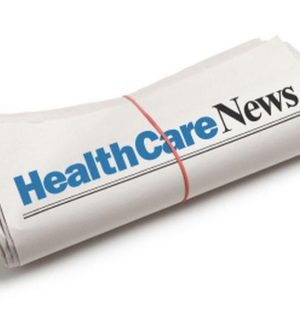- Recognizing the Signs of Hypothyroidism
- 10 Strategies to Overcome Insomnia
- Could Artificial Sweeteners Be Aging the Brain Faster?
- Techniques for Soothing Your Nervous System
- Does the Water in Your House Smell Funny? Here’s Why
- Can a Daily Dose of Apple Cider Vinegar Actually Aid Weight Loss?
- 6 Health Beverages That Can Actually Spike Your Blood Sugar
- Treatment Options for Social Anxiety Disorder
- Understanding the Connection Between Anxiety and Depression
- How Daily Prunes Can Influence Cholesterol and Inflammation
Health Highlights: May 28, 201

Few Cases of Heart Inflammation in Big Ten Athletes with COVID-19
Heart inflammation was detected in just over 2% of nearly 1,600 Big Ten Conference athletes who’ve had COVID-19, a new study says.
Of those 37 athletes, only nine had chest pain, palpitations or other symptoms, according to the analysis of Big Ten COVID-19 Cardiac Registry data, the Associated Press reported.
Follow-up testing about a month later showed that heart inflammation was no longer present in most of the 37 athletes, but about 40% of them had some scarring, the study in the journal JAMA Cardiology said.
Because heart inflammation has been found in COVID-19 patients, there were concerns that the disease could increase risks for Big Ten athletes, which led the league to create the registry last September, the AP reported.
The study involved almost 2,500 athletes from 13 Big Ten schools who had heart testing, including nearly 1,600 whose testing included imaging scans, from March through Dec. 15, 2020. Most of those whose scans showed inflammation were men. Age and race data were not included.
Study co-author Dr. Saurabh Rajpal, a cardiologist at Ohio State University, said the composite results echo other studies, including one at his university. But he noted the new data found widespread variations in prevalence of affected athletes, from zero at one university to 7% at another.
Different imaging scanners and techniques may explain the variations, Rajpal said, adding that the results underscore a need to develop a standard protocol for heart testing in athletes.
Athletes who develop heart inflammation should be sidelined until symptoms disappear and imaging scans are normal, he said.
Those with COVID-19 want to know “how long until we can go back and start playing? We mostly just make up a number,” Rajpal said. “As we follow more patients, we will be able to come up with an answer.”
California Offers $116.5 Million in Prizes in COVID-19 Vaccination Drive
California will award a total of $116.5 million in prizes to people who get COVID-19 vaccines in an attempt to boost vaccination rates before the state fully reopens next month.
The prizes will include $1.5 million each for 10 people, and $50 gift cards either for general use or for specific grocery stores to the next 2 million people who get shots, the Associated Press reported.
“We’re putting aside more resources than any other state in America, and we’re making available the largest prizes of any state in America for those that seek to get vaccinated,” Gov. Gavin Newsom said Thursday.
Anyone 12 and older who has received at least one shot will be eligible. The state will use its immunization database to automatically enter people into the drawings, though it’s still exploring how to include those vaccinated at federal facilities, such as veterans hospitals, the AP reported.
Newsom said he hopes to give out all the gift cards by June 15, which would mean 2 million more people are vaccinated. Money for the prizes will come from the state’s disaster response account, which will be reimbursed by federal coronavirus relief money, Amelia Matier, a Newsom spokeswoman, told the AP.
The objective is to convince 12 million people who are eligible but not yet vaccinated to get shots.
About 63% of the 34 million Californians aged 12 and older have gotten shots, though the pace has slowed as infection rates have plummeted to record lows, the AP reported. The number of people getting their first shots dropped notably in the past week, Newsom said.
California joins a growing list of states offering incentives to boost vaccination rates.
The first $1 million winner of Ohio’s “Vax-a-Million” contest was announced, as well as the first child to win a full college scholarship. The number of people signing up for shots jumped after Gov. Mike DeWine announced the lottery, though it was still lower than earlier in the pandemic, the AP reported. Colorado and Oregon also offered $1 million prizes.
Meanwhile, New York is raffling 50 full scholarships to children aged 12 to 17 to public universities and colleges in the state, selecting 10 winners each of the next five Wednesdays, the AP reported.
Copyright © 2026 HealthDay. All rights reserved.










